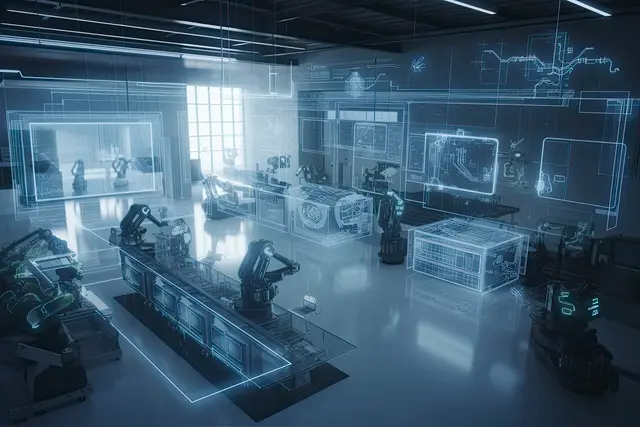Overcoming Revenue Management Challenges with AI-Powered Automation
The hospitality industry is constantly evolving, and with it, the challenges of revenue management. Manually managing pricing, forecasting demand, and optimizing inventory across multiple channels can be a daunting task, leading to lost revenue and inefficiencies.
Enter Revenue Management Automation: a game-changing solution that harnesses the power of Python, AI, and cloud-based technologies to streamline and enhance revenue management processes. By automating these complex tasks, hoteliers can unlock a wealth of benefits, including:
- Increased Revenue: Automated systems can analyze vast amounts of data in real-time, enabling hoteliers to make informed decisions about pricing and inventory allocation, maximizing revenue across all channels.
- Improved Efficiency: Automation eliminates manual processes, freeing up time for revenue managers to focus on strategic initiatives and guest experience.
- Enhanced Accuracy: Automated systems leverage AI algorithms to forecast demand and set optimal prices, reducing the risk of human error and improving overall accuracy.

Python, AI, and the Cloud: A Winning Trio for Revenue Management Automation
Python’s Role in Building Unattended and Attended Bots
Python’s versatility and ease of use make it an ideal choice for developing both unattended and attended bots for revenue management automation.
Unattended Bots:
Python-based unattended bots can run autonomously, 24/7, to monitor revenue data, analyze trends, and make automated decisions. This can include tasks such as:
- Adjusting pricing based on demand forecasts
- Optimizing inventory allocation across channels
- Generating reports and insights for revenue managers
Attended Bots:
Attended bots, on the other hand, work alongside revenue managers, providing real-time assistance and automating repetitive tasks. Python’s flexibility allows for a high level of customization, enabling developers to tailor bots to specific needs. For example, attended bots can:
- Assist revenue managers in setting pricing strategies
- Provide recommendations for inventory management
- Generate personalized offers for guests
Cloud Platforms: The Ultimate Orchestrators
Cloud platforms offer a comprehensive suite of features and capabilities that far surpass traditional RPA/workflow tools. These platforms provide:
- Scalability: Cloud platforms can easily scale to handle large volumes of data and complex automation processes.
- Reliability: Cloud platforms are highly reliable, ensuring that revenue management automations run smoothly and without interruption.
- Integration: Cloud platforms seamlessly integrate with other business systems, such as property management systems and customer relationship management (CRM) systems.
AI’s Role in Enhancing Accuracy and Handling Edge Cases
AI algorithms play a crucial role in improving the accuracy and effectiveness of revenue management automations. By leveraging machine learning and deep learning techniques, AI can:
- Forecast demand: AI algorithms can analyze historical data and external factors to predict future demand patterns.
- Identify trends: AI can identify hidden trends and patterns in revenue data, providing valuable insights for revenue managers.
- Handle edge cases: AI algorithms can be trained to handle exceptions and edge cases that traditional automation rules may not be able to address.
Specific AI techniques that can enhance revenue management automations include:
- Image recognition: AI can analyze images of hotel properties and amenities to extract valuable data for pricing and promotion.
- Natural language processing (NLP): AI can process and understand guest reviews and feedback to identify trends and improve service quality.
- Generative AI: AI can generate personalized offers and recommendations for guests, based on their preferences and past behavior.

Building a Robust Revenue Management Automation with Python and the Cloud
Key Sub-Processes in Revenue Management Automation
The key sub-processes involved in revenue management automation include:
- Data collection and integration: Gathering data from various sources, such as property management systems, booking channels, and market research.
- Data analysis and forecasting: Analyzing historical data and external factors to forecast demand and identify trends.
- Pricing optimization: Setting optimal prices for different room categories and booking channels based on demand forecasts.
- Inventory management: Managing inventory allocation across channels to maximize occupancy and revenue.
- Reporting and insights: Generating reports and providing insights to revenue managers to support decision-making.
Automating Sub-Processes with Python and the Cloud
Step 1: Data Collection and Integration
- Use Python scripts to extract data from various sources using APIs or web scraping.
- Integrate with cloud platforms to store and manage large volumes of data efficiently.
Step 2: Data Analysis and Forecasting
- Use Python libraries, such as Pandas and Scikit-learn, to analyze data and build forecasting models.
- Leverage cloud platforms for scalable and parallel data processing.
Step 3: Pricing Optimization
- Develop Python algorithms to optimize pricing based on demand forecasts and market conditions.
- Use cloud platforms to deploy and manage pricing models in real-time.
Step 4: Inventory Management
- Create Python scripts to manage inventory allocation across channels based on demand predictions.
- Integrate with cloud platforms for inventory tracking and management.
Step 5: Reporting and Insights
- Generate Python scripts to create reports and visualizations for revenue managers.
- Leverage cloud platforms for data storage and analytics to provide real-time insights.
Importance of Data Security and Compliance
Data security and compliance are paramount in the hospitality industry. Python and cloud platforms provide robust security measures to protect sensitive guest data, including:
- Encryption: Data is encrypted at rest and in transit.
- Authentication and authorization: Access to data is controlled through user authentication and authorization mechanisms.
- Compliance with industry standards: Cloud platforms adhere to industry standards, such as PCI DSS and GDPR, to ensure data protection.
Advantages of Python over No-Code RPA/Workflow Tools
- Flexibility and customization: Python provides greater flexibility and customization options, allowing for the development of complex and tailored automations.
- Integration with cloud platforms: Python seamlessly integrates with cloud platforms, providing access to powerful features and capabilities.
- Scalability and performance: Python is a scalable and performant language, suitable for handling large volumes of data and complex automation tasks.
Why Algorythum’s Python Approach is Superior
Algorythum takes a different approach to revenue management automation, recognizing the limitations of pre-built RPA tools. Our Python-based approach offers:
- Tailor-made solutions: We develop custom automations that are tailored to the specific needs of each hospitality business.
- End-to-end expertise: Our team of experts provides end-to-end support, from automation design to implementation and maintenance.
- Proven results: We have a proven track record of delivering successful revenue management automation solutions that drive significant revenue growth for our clients.

Revenue Management Automation: A Glimpse into the Future
As technology continues to advance, there are exciting possibilities to further enhance revenue management automation using emerging technologies:
- Artificial Intelligence (AI): AI algorithms will become even more sophisticated, enabling revenue managers to make more accurate predictions and optimize pricing strategies in real-time.
- Machine Learning (ML): ML algorithms will be used to automate even more complex tasks, such as personalized pricing and demand forecasting.
- Natural Language Processing (NLP): NLP will enable revenue management systems to understand and respond to guest feedback, providing valuable insights for improving service quality.
Subscribe to Algorythum for Industry-Specific Automation Insights
Stay ahead of the curve by subscribing to Algorythum’s newsletter. We provide exclusive insights on the latest automation trends and best practices in the hospitality industry.
Contact Us for a Free Feasibility and Cost Estimate
If you’re considering implementing revenue management automation for your hospitality business, contact Algorythum today. Our team of experts will provide a free feasibility assessment and cost estimate, tailored to your specific requirements.
Together, let’s unlock the full potential of revenue management automation and drive significant growth for your business.

Algorythum – Your Partner in Automations and Beyond
At Algorythum, we specialize in crafting custom RPA solutions with Python, specifically tailored to your industry. We break free from the limitations of off-the-shelf tools, offering:
- A team of Automation & DevSecOps Experts: Deeply experienced in building scalable and efficient automation solutions for various businesses in all industries.
- Reduced Automation Maintenance Costs: Our code is clear, maintainable, and minimizes future upkeep expenses (up to 90% reduction compared to platforms).
- Future-Proof Solutions: You own the code, ensuring flexibility and adaptability as your processes and regulations evolve.









